The Best Movies to Stream This Weekend
Another weekend arrives, and with it, the question of what you’ll stream in your free time. There are plenty of lists that’ll give you a rundown of what’s arriving on the various services, the best movies out there, of what’s hot and what’s not. But the biggest problem with streaming is that there’s too much choice. To help cut through the noise, we’ve hand-selected a few films, a hand-curated group of the best movies out there, each chosen deliberately.
Want to get watching right away? Netflix, HBO Go, Amazon, Hulu, AppleTV+, and Disney+ all offer free trials so you can start streaming without committing a cent. Note: If you sign up for a free trial through these links, GQ may earn an affiliate commission.
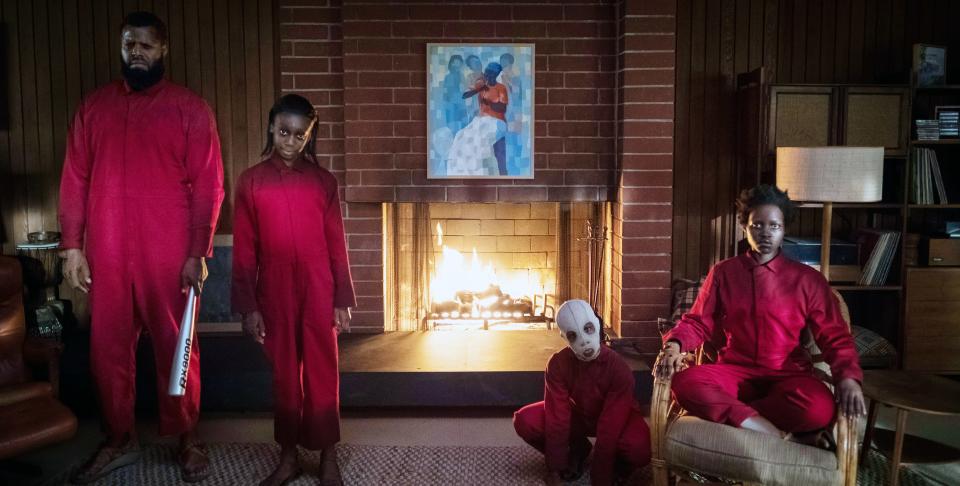
Film Title: Us
Everett CollectionSomething New: Us (HBO Now)
It’s as though Jordan Peele’s doppelgänger horror has risen from beneath the boardwalk and is screaming, “Don’t forget about me!” As the year’s Oscar hopefuls are hitting theaters, 2019’s original movie sensation is available to stream (Nov 23). Unlike Peele’s previous film, Get Out, Us doesn’t stand much of a chance at being nominated in the major categories. But if there were an Oscar for rewatchability, Us would surely be the frontrunner. There are Easter eggs and interpretable concepts to unpack all over again. And it’s also the perfect flick for a movie night with friends—by turns frightening and funny; and ultra-quotable.
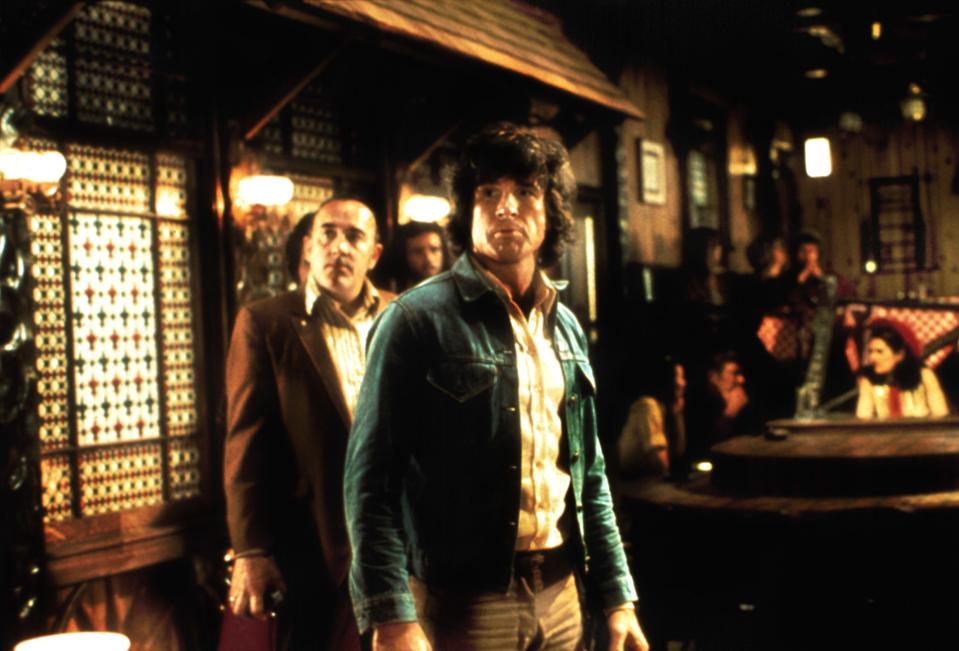
THE PARALLAX VIEW, Warren Beatty, 1974
Everett CollectionSomething to Stoke Your Paranoia: The Parallax View (HBO Now)
In a recent interview, Todd Haynes explained why he ventured outside of his wheelhouse (which typically revolves around art and sexuality) to make his new environmental law drama, Dark Waters. The film is about the real life lawyer (played by Mark Ruffalo) who took on the DuPont corporation’s pernicious use of deadly chemicals, and Haynes, of course, was invested in the story from a political standpoint. In it, he’s capturing the systemic flaws that allow profit-hungry corporations to do irreversible damage to the planet and humans’ health with near-immunity.
But Haynes also wanted to tell the story because he was a fan of the whistleblower genre. In particular, he liked these movies’ linearity: the audience learns, changes, and reacts with the protagonist. He was thinking of movies like All The President’s Men, The Insider, and Silkwood.
And, also, Alan J. Pakula’s 1974 classic, The Parallax View, which is currently available to watch on HBO Now. Unlike those other films, The Parallax View is not based on a true story. Instead, the film follows a tenacious reporter named Joe Frady (a shaggy Warren Beatty) as he peels back a conspiracy and uncovers a corporation that specializes in political assassinations.
A clear product of the Watergate era, Parallax is packed with paranoid unease and distrust of power. But it can also be appreciated on a purely stylistic level, with its emphasis on man-made shapes and stark contours. Likewise, few movies are as inventive in their scene-staging. If you don’t care about about the conspiratorial mystery at the heart of Parallax, maybe you’ll care about this one: How does Pakula manage to work in monkeys, a children’s ride, and Seattle’s Space Needle?
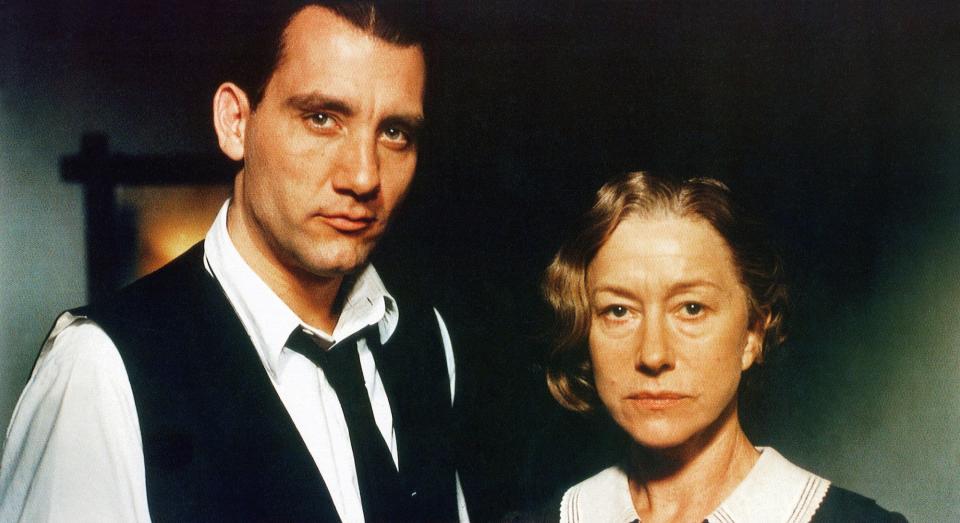
GOSFORD PARK, from left: Clive Owen, Helen Mirren, 2001, © USA Films/courtesy Everett Collection
Everett CollectionSomething with Murder: Gosford Park (Netflix)
There’s a palatial estate. There’s an ensemble of British aristocrats and their help. There’s a murder. There’s a pipe-smoking detective. And there’s a twist.
The late Robert Altman’s 2001 gem has all the hallmarks of a classic Agatha Christie-style murder mystery. And yet, unlike Rian Johnson’s upcoming whodunnit Knives Out, Altman’s film gives short shrift to both the murder and the mystery.
Instead, in classic Altman fashion, Gosford is a lush, naturalistic tapestry—full of gorgeous period costumes, near-rococo sets, and ample eye-catching actors (Clive Owen, Helen Mirren, Emily Watson, Maggie Smith, Bob Balaban, Charles Dance, and many more). The lighting, also, is sublime.
Set in Britain in 1932, the class dynamics between a wealthy family, their equally affluent guests, and their servants takes center stage. Altman seemed most interested in the way societal roles dictate performance (a couple actors and a Hollywood director are among the guests). If you’re looking for suspense, look elsewhere: Gosford is slowww. But if you’re looking to fade quietly and deeply into another time and place, Gosford can be that dream.
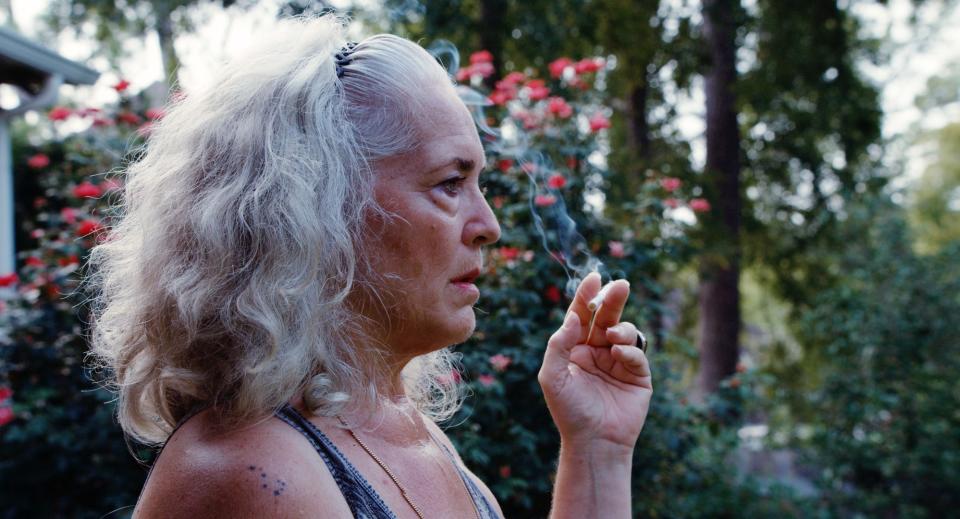
KRISHA, Krisha Fairchild, 2015. © A24 / courtesy Everett Collection
Everett CollectionSomething to Get You Ready for Waves: Krisha (Netflix)
There are great movies, and then there are great movies that double as generational anthems. Maybe Waves, the latest from Trey Edward Shults (out now), just feels like the latter because it features so many actual generational anthems (Tyler, Frank, and Yeezus-era Kanye all get play), but I don’t think that’s it. This high school drama follows two siblings in separate love sagas. And it stunningly captures the swells and riptides that are universal to youth—and, more excitingly, the ones that are particular to this moment. The exchange of intimate Snaps is ecstatic, an unanswered text is a punch to the gut. It’s the sort of movie that feels like it came out of nowhere—announcing a new, important voice in American cinema.
Of course, it didn’t come out of nowhere. Shults, who is 31, made the critically-acclaimed post-apocalyptic nightmare It Comes at Night, which, despite being more family drama than horror film, scared me as much as any movie I’ve seen. For those who missed it and can stomach a bleak trip to the woods, it’s more than worth a watch.
Also worth a watch is Shults’s much less seen debut, Krisha (2015). Its subject, like Night and Waves, is family—though here it’s completely unadulterated. Aunt Krisha (Krisha Fairchild), our mysterious point-of-view character, shows up for a family gathering, and though not much happens, tension builds and builds until it explodes. (Shults is proving to be a master at pulling those particular strings.)
The family is played by Shults, his friends, and members of his actual family, and nearly the entire movie takes place at his parents’ home in Texas. For a bunch of untrained actors, his family is not just believable, but hypnotic. And for a first time filmmaker, he certainly did a lot with a little. The camera swoops and circles, giving life to a fairly vanilla suburban home. The Punch Drunk Love influence can be a bit overt, with the film’s bee-boop-jingle-jangle score and anxiety-inducing family. But overall, Krisha is a marvel of low-budget filmmaking. When you see Waves, you’re going to want more Shults, and Krisha is a thrilling, unvarnished peak.
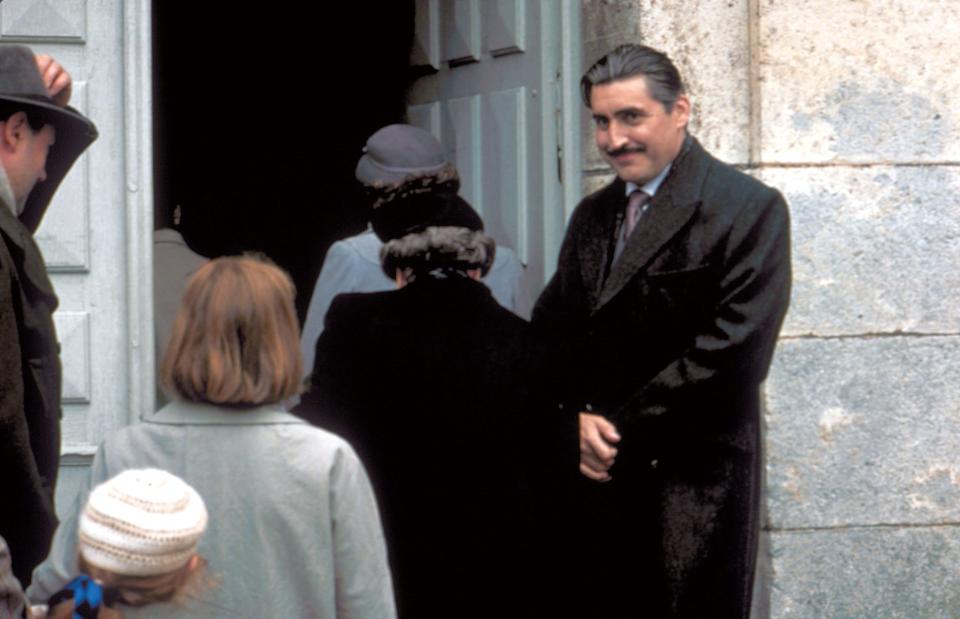
CHOCOLAT, Alfred Molina (right), 2000, (c) Miramax/courtesy Everett Collection
Everett CollectionSomething to Rediscover: Chocolat (HBO Now)
For a movie about chocolate, there’s a lot of cheese in Lasse Hallström’s 2000 classic. Led by a prurient priest (Alfred Molina), a small French village is scandalized by a secular single mother (Juliette Binoche) opening a chocolate shop during Lent (just wait until they see what she does in High Life!). You probably know the rest. In sails ponytailed Johnny Depp—who, by the way, gives his best-ever performance as a pirate—to repair doors and make love in a boat under the moonlight.
Chocolat’s earnestness has made it the butt of plenty of jokes, but revisited today, that same quality is actually refreshing. There’s no winking, no frills to the filmmaking, a total commitment to this big, sappy, folkloric story. It’s the sort of broad romantic drama that’s practically gone extinct. By today’s standards, the issues it’s wrestling with are adorable. For a double dose of nostalgia—there’s the film itself, and there’s its era—look no further.
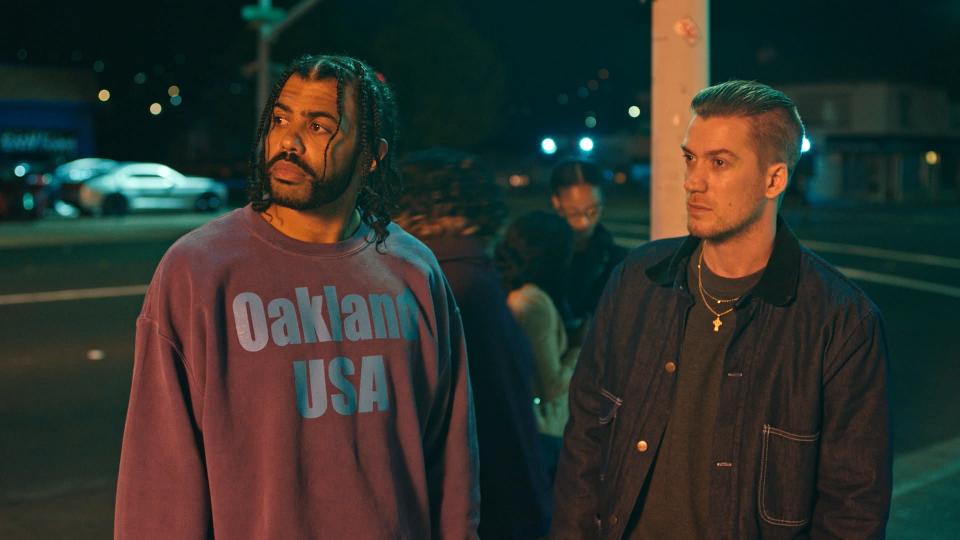
MCDBLIN EC178
Everett CollectionSomething You Surely Missed: Blindspotting (Hulu)
Every now and then there’s a movie that slips through the cracks mysteriously. Last year, for me, that movie was Daveed Diggs and Rafael Casal’s Blindspotting. It was funny (the opening gun purchase is wonderfully absurd), intense (there’s nothing scarier than a gun in a child’s hand), and current (with interesting things to say about being Black in America, and being White in a Black community). It had a unique voice and sense of place. And Diggs and Casal, who are close friends in real life (they’re both from the Bay and have made music together), together have a rhythmic chemistry and dynamic screen presence. I still can’t reckon why its reviews were middling and its coverage spotty. Maybe you can?
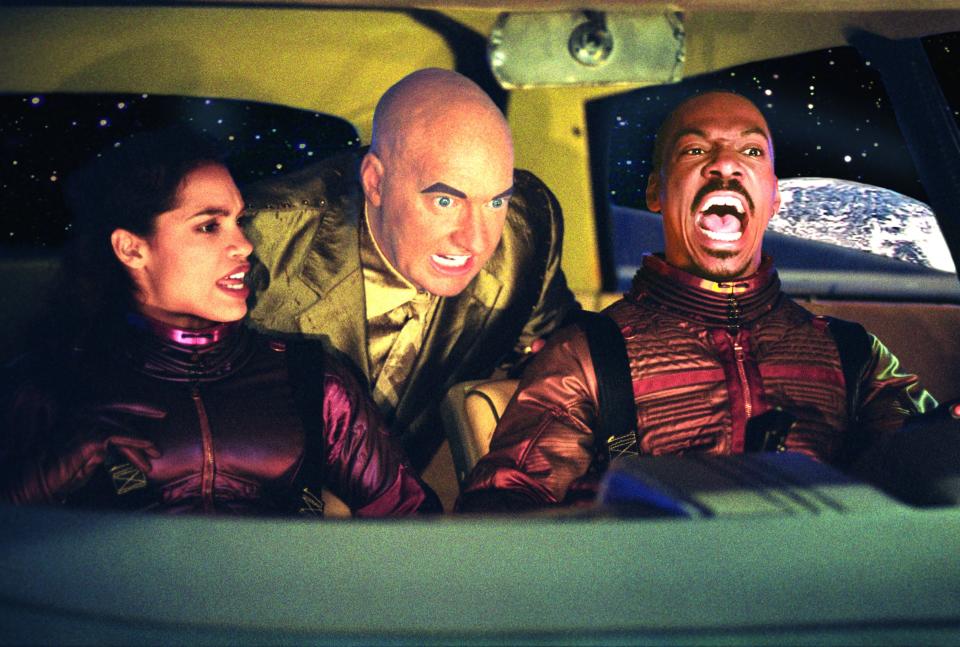
ADVENTURES OF PLUTO NASH, Rosario Dawson, Randy Quaid, Eddie Murphy, 2002, (c) Warner Brothers/court
Everett CollectionSomething So Bad It Might Be Good?: Pluto Nash (Tubi)
There’s been a lot of talk recently about what constitutes cinema. And folks, I’m here to tell you that Eddie Murphy’s 2002 futuristic space flick is undeniably it. With all the bew bew bew laser shooting and its visionary portrait of the year 2080, it’s an achievement of epic proportions. Before “fucking up motherfuckers” was Dolemite’s game, it was Pluto Nash’s. The 21st century canon begins with The Adventures of Pluto Nash.

Something New: The Laundromat (Netflix)
How many movie stars does it take to explain the Panama Papers?
The answer—are you ready?—is about five (give or take a few, depending on whether you consider very fine actors like Will Forte, Larry Wilmore, and James Cromwell movie stars). Steven Soderbergh’s new Netflix film, The Laundromat,is in the mold of modern explanatory, fourth wall-breaking comedies about very real and (usually) unfunny shit. Which might sound specific... but, between The Wolf of Wallstreet and Vice and I, Tonya, it’s kind of become a thing. The Laundromat lies somewhere between The Big Short and BlacKkKlansman.
It’s narrated by swankily chic Antonio Banderas and Gary Oldman, as founders of a Panama-based law firm that helps extremely wealthy people establish offshore bank accounts. Every now and then they turn to the camera to explain things like mediums of exchange and shell companies. It’s hard to listen to Oldman’s German accent, which can teeter on shrill, but really you hardly need to follow what the pair is telling you to get the point: the super rich, especially the ones who are super terrible, are super good at cheating and scamming. Or, maybe they’re not even that good at it. Maybe the world’s laws—and America’s in particular—are just so wacky that it’s easy. What Soderbergh actually does brilliantly, though, is weave together a number of connected stories that might not feel connected to the people living them—the scammers and victims are thousands of miles away from each other, and each are practically anonymous to the other. He gives you a sense of the tenuousness of the connections, but also the stakes. And for a breezy movie, he also doesn’t make the mistake of feigning a happy ending, even when the criminals are locked up.
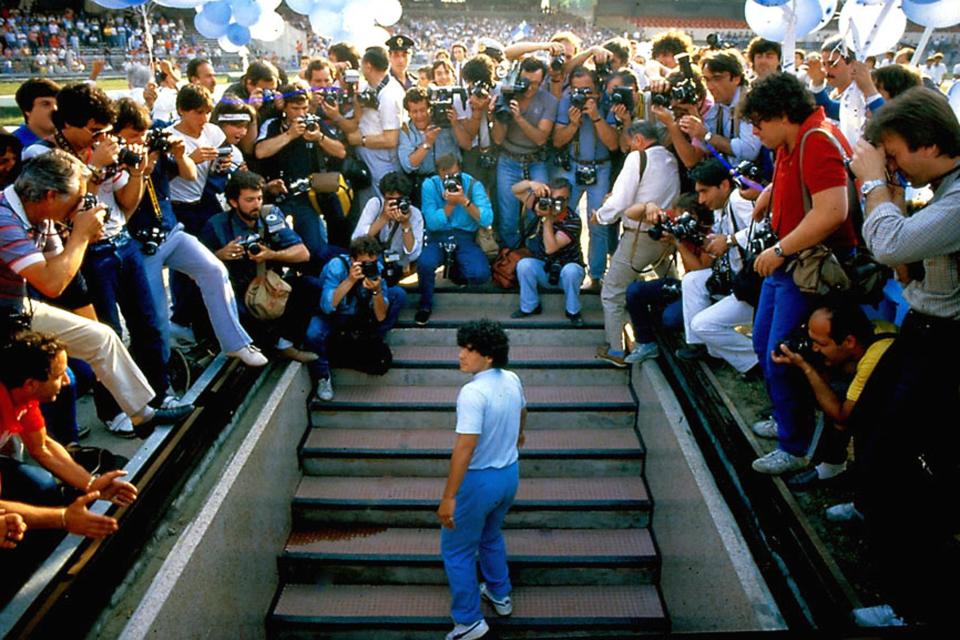
Or: Diego Maradona (HBO)
Whether you know everything or nothing about Diego Maradona, one of soccer’s all-time greats and sports’ all-time polarizers, you’ll get a solid kick out of Asif Kapadia’s (Amy, The Warrior) new documentary. The footage of the Argentinian in his prime, especially with Napoli and his national team, is electric (to quote a teammate, Maradona was “Great! Like a fish!”). The depiction of the ‘80s—the cars, the clothes, and the hair—is a hoot. And Kapadia manages to be thorough, while also moving things along at a good pace (it clocks in at 2 hours, 10 minutes).
But Kapadia seems most interested in celebrity, and that’s where the film really flourishes. We spend more time watching Maradona be mobbed by invasive press and obsessive fans than by opposing defenders. Kapadia shows him for all his warts—he cheats on his wife with prostitutes, cavorts with mobsters, develops a cocaine habit, and flatly denies a woman’s claim that he fathered her son.
By no stretch does Kapadia excuse Maradona’s behavior. But what he does do is extend the culpability—to us. When Maradona led Napoli to a championship, his Italian fans elevated him to god status. His misdeeds were largely known, but the public looked the other way. And it was only after he helped defeat the Italian team in the 1990 World Cup that the authorities and fans vilified him for his crimes, precipitating his public and athletic demise. The textures and aesthetics are decidedly of the ‘80s, but Maradona’s story continues to play itself out today.
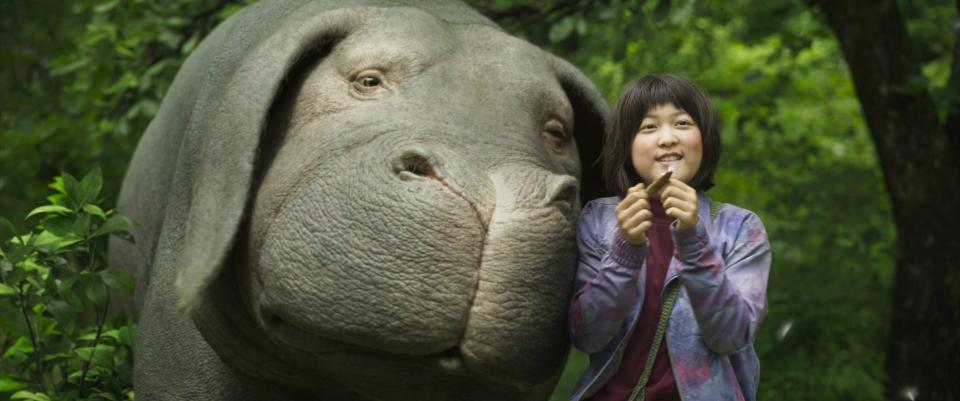
Something to Quench Your Bong Joon-Ho Thirst: Okja (Netflix)
Parasite, you might’ve heard, is a pretty swell flick—so good you shouldn’t watch the trailers or read anything about it, you should just go! There’ll be plenty of opportunities to see Parasite, and in the meantime, a few of writer-director Bong Joon-ho’s previous films are available to stream. Snowpiercer is on Netflix, Tokyo! is on Prime, and The Host is on tubi. You can’t go wrong, really. That said, my favorite of the Korean master’s previous films is his last, 2017’s Okja, a film about hippo-sized genetically engineered pig creatures that get farmed for meat.
Okja does the same thing Parasite does—just with meat consumption.It might not make you want to become a vegetarian—that’s not what the movie’s aiming for, anyway—but it will make you feel horrible, and a little more conscious. Feeling horrible about a system you don’t have the power to change might not sound so great. But Okja’s not The Joker. Like Parasite and director Bong’s other work, it’s riotously funny, and an altogether fun ride. Seriously, there’s a car chase… only it involves a giant pig creature instead of a getaway car. That’s worth all the guilt in the world.
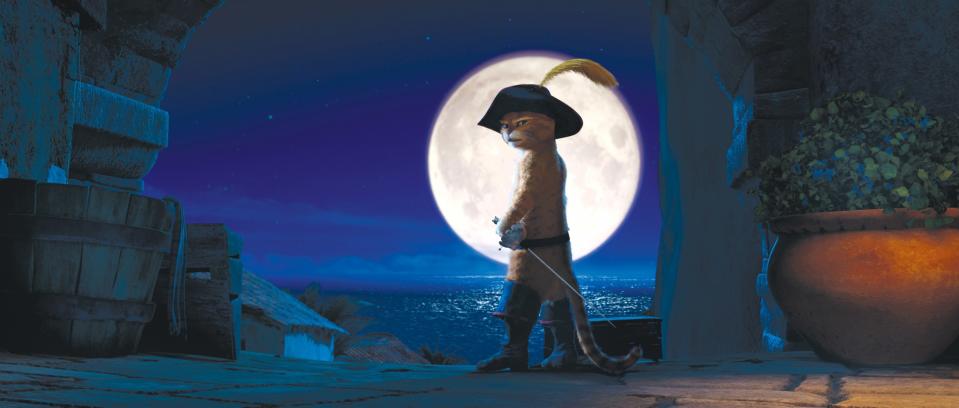
PUSS IN BOOTS, Puss in Boots (voice: Antonio Banderas), 2011. ©Paramount Pictures/Courtesy Everett C
Everett CollectionSomething to Quench Your Banderas Thirst: Puss in Boots
Though more refined, Antonio Banderas is like Flaming Hot Cheetos in two ways: He’s zesty, and also, the more you get, the more you want. Banderas plays prominent roles in two films currently in theaters: Steven Soderbergh’s lively Panama Papers comedy, The Laundromat, and Pedro Almodovar’s intimate, autobiographical drama, Pain & Glory. It’s enough Banderas for a double feature... which, if we’re being honest, probably still isn’t enough Banderas.
Fortunately, the various streaming services are plenty stocked with Banderas. You can watch Gun Shy or Life Itself on Prime, The 33 on HBO NOW, or The Legend of Zorro on Sony Crackle. But, c’mon, if your thirst for Banderas will never be quenched… we all know what Banderas you’re going to choose (on HBO NOW).

MR. JEALOUSY, Eric Stoltz, Annabella Sciorra, 1997, (c)Lions Gate/courtesy Everett Collection
Everett CollectionSomething to Reconsider: Mr. Jealousy (Amazon Prime)
Every artist’s path is unique. But for many great filmmakers, there’s a similar starting template. The first film marks the imperfect yet thrilling—or, thrillingly imperfect—emergence of a new voice, and then the second marks the refinement of that voice. There’s still an excess of ideas and fresh energy, but there’s also deeper control. Often, those sophomore efforts are the ones we most associate with the filmmaker’s early work: Boogie Nights, Pulp Fiction, Lost in Translation, Stranger Than Paradise, Rushmore, Big, Se7en, the list goes on.
Noah Baumbach is part of a different tradition, though: that of filmmakers who hit home runs in their first at-bat, and then disappoint by merely getting on base their next turn. Baumbach’s first feature, Kicking and Screaming, was a generational touchstone. It came midway through the ‘90s, just after Reality Bites and just before Swingers, and, like those films, was all about coming of age (as a middle class white person) during that era. Its characters were bright and witty ("Prague! You'll come back a bug!"), but also listless, verging on pathetic. In her New York Times review, Janet Maslin wrote that Kicking occupied “its postage-stamp size terrain with confident comic style” and that Baumbach displayed a “keen recollection of what it's like to be smart, promising and temporarily adrift.”
Ironically, after Kicking, Baumbach again found himself adrift. He no longer had the benefit of rookie bluster and first film naiveté. “I think there was kind of a built-in self-consciousness going into the second movie, that I think I struggled on that one,” he said during a 2017 Tribeca Film Festival panel. “The first movie kind of had this hang-out quality, which I really was actually truer to me than maybe I even let on. The second one, I was trying to do something more structured and almost more traditional, and I think it wasn’t as personal.”
That second film, Mr. Jealousy, is currently available on Amazon Prime, and at a time when it’s mostly been lost within Baumbach’s impressive oeuvre, it’s worth revisiting or simply discovering. It stars Eric Stoltz (who played Chet in Kicking) as Lester Grimm, an early-30s substitute teacher with literary ambitions and an awful jealous streak—mostly in relationships, but also in his idling career.
Though it may have felt less personal than Kicking to Baumbach, with its explicit exploration of jealousy and its New York setting, it was arguably a greater precursor of his work to come. Mr. Jealousy is sweeter and less cynical than Greenberg or While We’re Young, but in Lester you can make out bits of Ben Stiller’s characters in those movies. And though Baumbach’s camerawork isn’t as dynamic as in Frances Ha or The Meyerowitz Stories, there’s similarly a palpable affection for, and a deep understanding of, New York City.
And actually, a lot of what may have been disappointing about Mr. Jealousy when it was first released is endearing today. You can clearly see Baumbach stealing from his heroes to find his own voice. It’s narrated (by Baumbach) in the style of Francois Truffaut’s Jules and Jim. And the oddball premise—Lester joins the therapy group of his girlfriend’s ex—is that of an early Woody Allen comedy.
Still, amidst all the references and stolen devices, there are unmistakable bits of Baumbach—Vince’s memorable offhand remark about people spitting in the coffee creamer at diners, all the self-analyzing and the rhythmic banter. Mr. Jealousy is caught between being a next chapter to Kicking and Screaming (it features many of the same actors playing characters at a slightly later station in life) and a prelude to Baumbach’s next films. But it deserves to have a second life on its own.
The actor talks about his 2017 heart attack, his relationship with director Pedro Almodóvar, and why his role in Puss in Boots is so important to him.
Based on what we saw at the Toronto International Film Festival.
Originally Appeared on GQ



